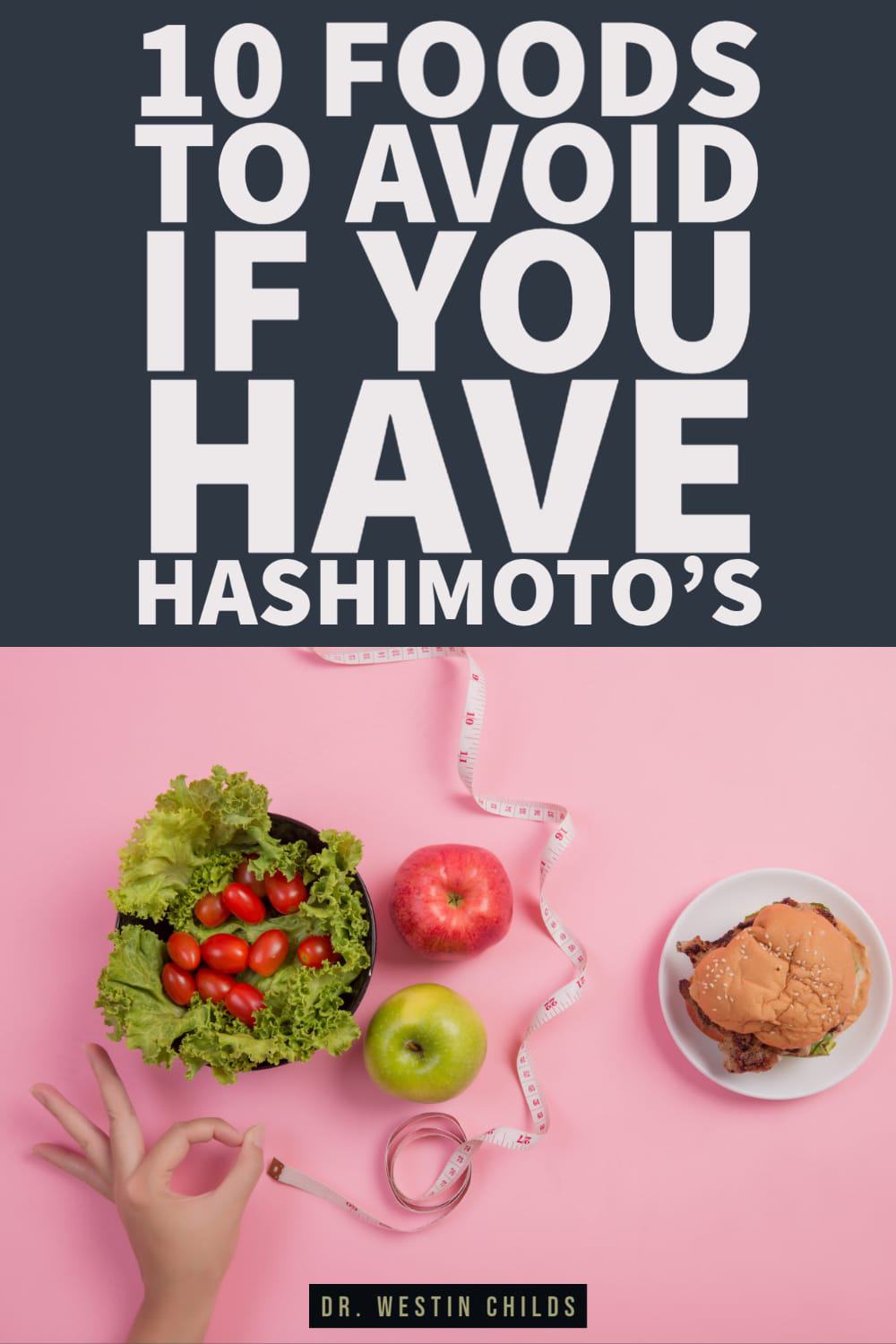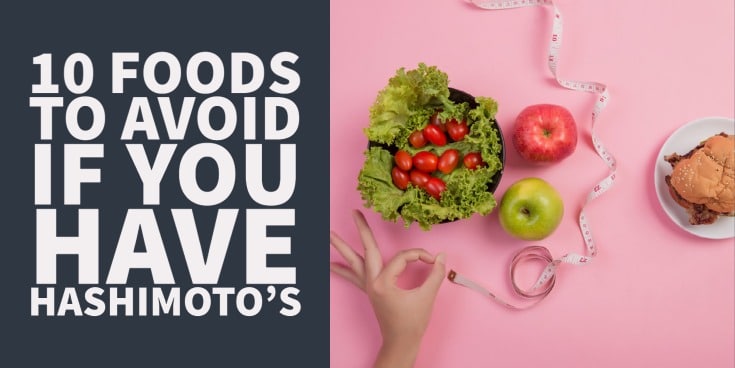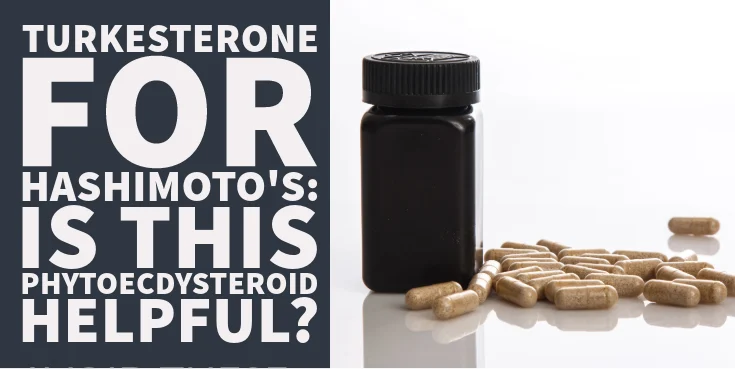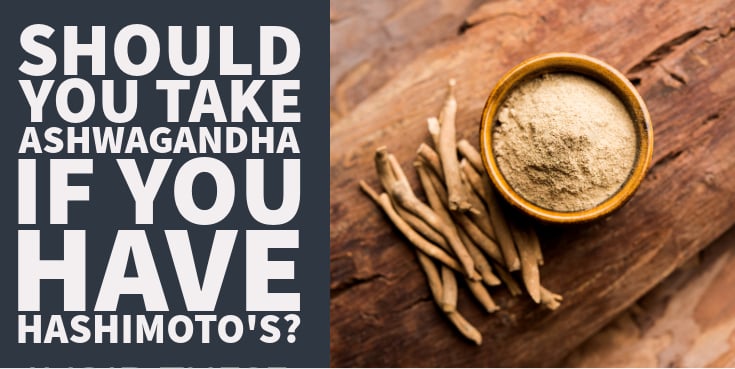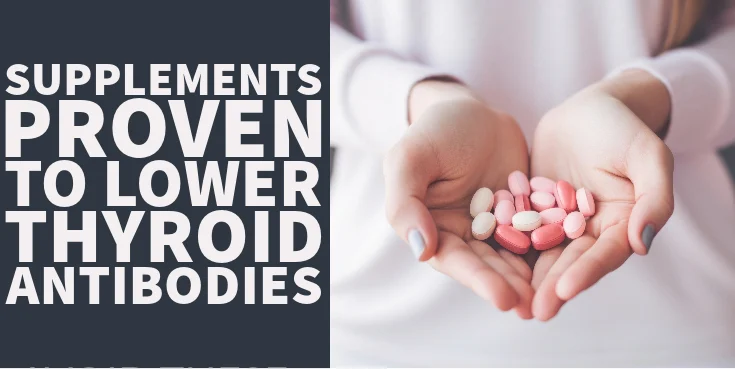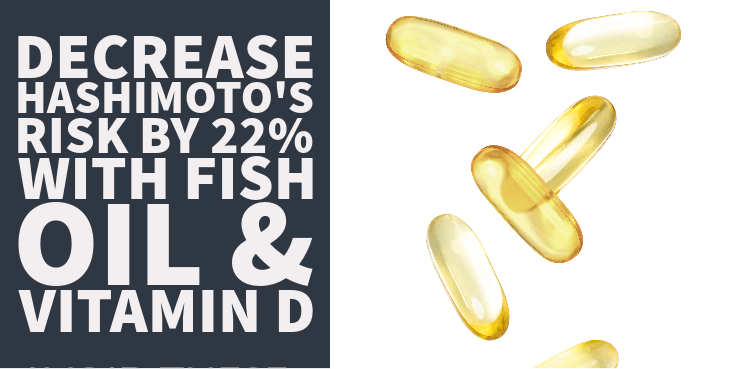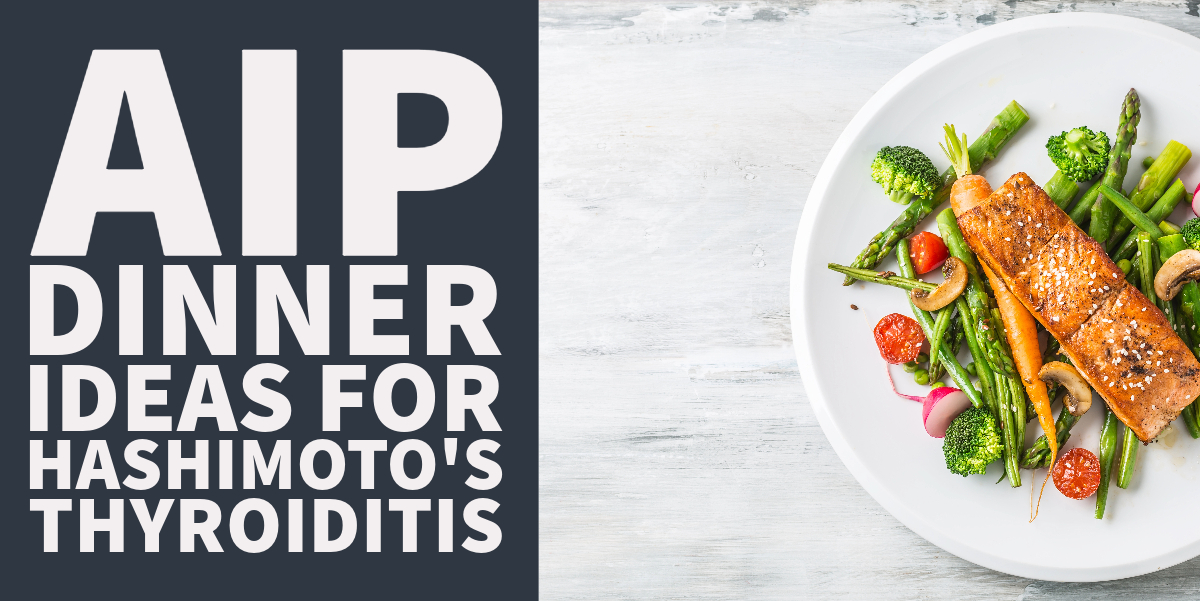One of the best things, and worst things, about Hashimoto’s, is that your diet has a powerful impact on how you are feeling.
But, as you will find, this is a double-edged sword.
Good in the sense that you HAVE control over how you are feeling (to some degree) but bad in the sense that you are accountable for everything that you put into your mouth!
Want an extra donut today? Better watch out because that gluten may flare up your immune system.
Want a quick breakfast by eating a bowl of cereal? Better be careful because dairy can exacerbate Hashimoto’s symptoms.
Trying to eat healthily by consuming raw vegetables? Too many may actually be harmful to your thyroid gland.
These are just a few of the issues that you can run into when trying to navigate the field of diet and your thyroid.
But don’t let this get you down:
Today we are going to demystify the link between your diet and how it impacts Hashimoto’s AND your immune system.
You will learn:
- A list of foods you should absolutely avoid if you have Hashimoto’s
- How these food groups wreak havoc on your thyroid gland and your immune system
- How to know if you need to avoid these foods
- And more…
DOWNLOAD FREE RESOURCES
Foods to Avoid if you Have Thyroid Problems:
I’ve found that these 10 foods cause the most problems for thyroid patients. Learn which foods you should avoid if you have thyroid disease of any type.
The Complete List of Thyroid Lab tests:
The list includes optimal ranges, normal ranges, and the complete list of tests you need to diagnose and manage thyroid disease correctly!
My Top 10 List of Food Groups that Hashimoto’s Patients Should Avoid
#1. Gluten
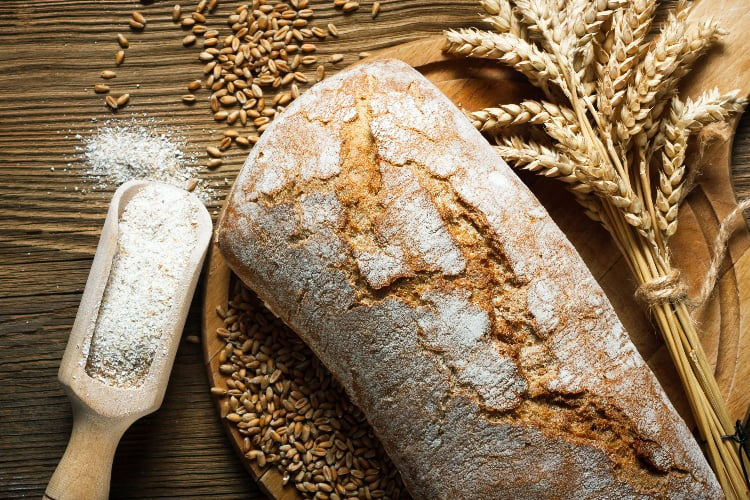
If you’ve had Hashimoto’s for any length of time then you probably already know that you should avoid gluten.
I am not going to harp on this topic for too long because this should really be something that you know already.
Gluten plays a major role in damaging the gut lining which can trigger inflammation, gut damage, and even trigger autoimmune disease by itself.
I’ve had the ability to treat many patients with Hashimoto’s over the years and it always surprises me when they say that they are not avoiding gluten or that they tried it and it didn’t work.
But when I pressed further, I found that they only gave giving up gluten a half-hearted attempt for a few weeks but never succeeded in removing it from their diet 100%.
If you fall into this category then you need to re-think your strategy!
Going gluten-free only works if you are 100% successful at removing it and if you keep it out of your diet for at LEAST 1 month (preferably two or three).
If you have given up gluten for a grand total of three months then you can say that you gave it a fair shot.
If you haven’t, then you need to go back and do it this way.
Once you re-introduce gluten you can then determine how your body is feeling and if you are feeling worse (or better which does happen sometimes).
#2. Iodized Salt
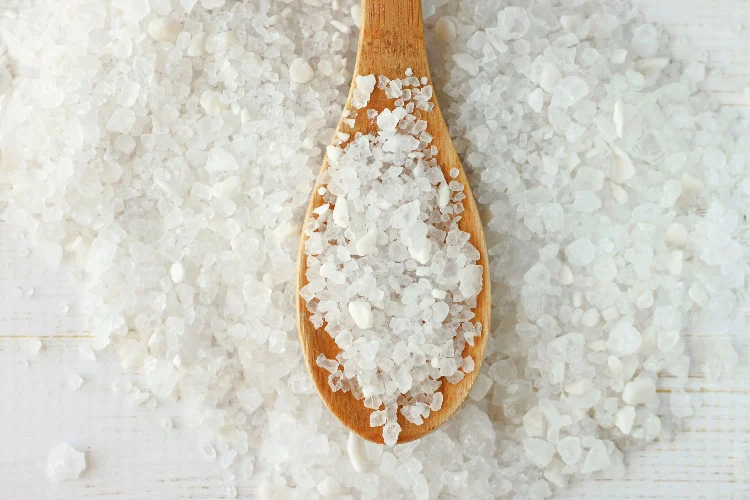
Next on the list is iodized salt!
But I don’t want you to confuse iodized salt with iodine because they are NOT the same thing.
Iodized salt is simply salt that has been fortified with iodine (iodine has been added to it).
As a patient with Hashimoto’s, you’ve probably been told that iodine is dangerous so it makes perfect sense that you would want to avoid iodized salt.
But if you are thinking this then you are wrong.
Iodine is NOT harmful to patients with Hashimoto’s, though it does have the potential to cause issues (1) if it is used incorrectly.
The reason I recommend avoiding iodized salt is that consuming iodine in this way may actually be harmful to patients with Hashimoto’s.
But it’s not harmful BECAUSE of the iodine, it’s harmful because consuming it in this way means that you are taking a dose of iodine without additional protective nutrients such as selenium.
Consuming iodine, without selenium, may actually trigger inflammation and damage to your thyroid gland.
For this reason, I always recommend that iodine be taken either with selenium or after you’ve supplemented it with selenium so you know that your body has enough selenium in storage.
But let me be clear:
Iodine is NOT dangerous to Hashimoto’s patients and it’s not something that you should avoid.
In fact, avoiding iodine may actually be harmful and can cause more thyroid problems down the line.
#3. Dairy Products
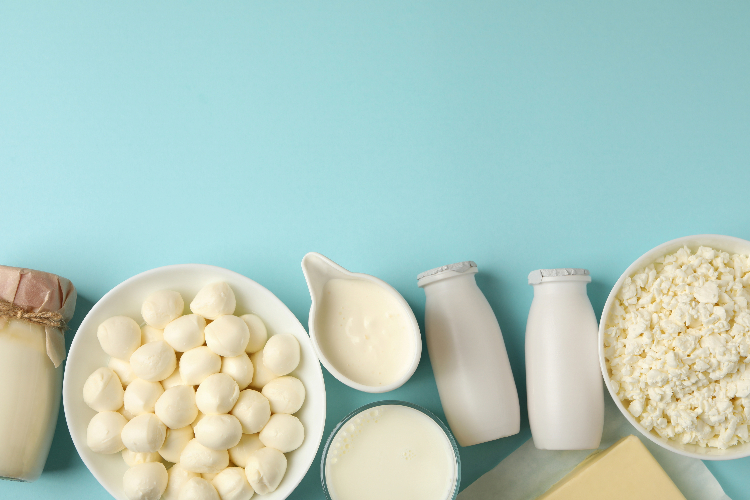
Dairy is another no-brainer food group to avoid if you have Hashimoto’s.
Why?
Well, for starters, a huge percentage of people have problems digesting dairy and this number is as high as 70% of people when you look at studies (2).
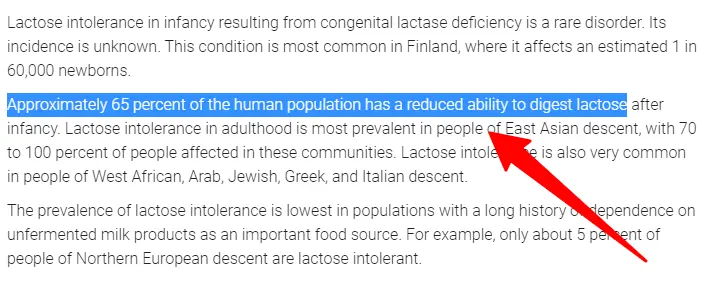
And when you dig deeper, you find that not only can people not digest dairy sugars, but they also have problems with dairy proteins.
Many patients with Hashimoto’s often find that they are incredibly sensitive to the protein fragments found in dairy products.
And these sensitivities can lead to inflammation and damage to the gut lining which can impair immune function and lead to more damage from your Hashimoto’s.
We even have evidence from medical studies to suggest that this is the case!
Studies have looked closely at Hashimoto’s patients taking dairy and compared these people to those who avoided it and they found that people with Hashimoto’s who avoided dairy had better thyroid lab tests (3) than those who didn’t.
As someone with Hashimoto’s, you should avoid dairy as well as dairy-based products like whey protein.
Instead of using whey protein, use a plant-based protein powder such as pea protein which is easy to digest and more friendly on the stomach.
#4. Soy
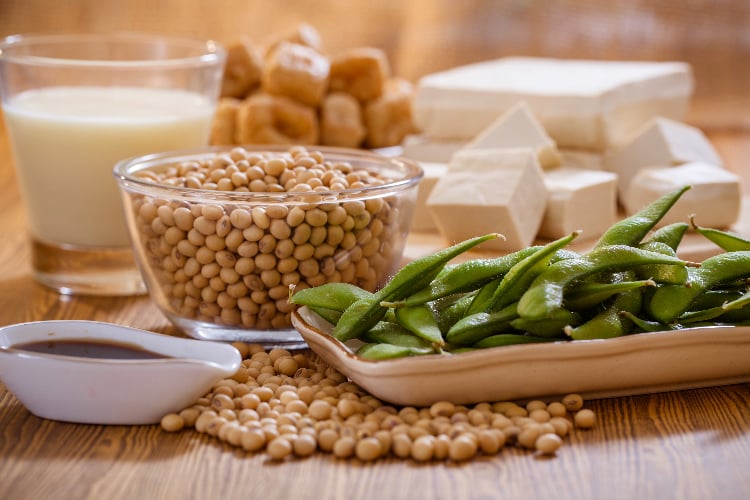
Any product that contains soy should also be avoided if you have Hashimoto’s.
This can be harder than you think because soy is often found in many foods and it’s not always obvious that it’s there.
Why is soy a problem?
Soy products are highly processed (which is one major negative) and they can cause problems with your thyroid gland by acting as a goitrogen.
Goitrogens are substances that block the uptake of iodine into your thyroid and this prevents your thyroid from working properly.
As a patient with Hashimoto’s who is ALREADY suffering from inflammation and damage to the thyroid gland, the last thing you want to do is make your thyroid gland have to work harder to produce what it needs.
You might be able to get away by using organic non-GMO soy products but I would be cautious of using soy in general as most patients with Hashimoto’s do better without it.
#5. Coffee

Don’t shoot the messenger!
Coffee is something that you should NOT be consuming if you have Hashimoto’s thyroiditis or any sort of thyroid problem.
People who drink coffee tend to be overly attached to it and I’ve seen them make all sorts of excuses as to why they NEED to have it on a daily basis.
If you are making excuses for why you need to drink coffee then there’s a good chance that you know you need to avoid using it but your desire to drink it exceeds your knowledge that it’s harmful to your body.

Coffee, and the caffeine found inside it, have been shown to cause low free thyroid hormone levels (4), may put an increased drag on your adrenal function, may reduce the quality of your sleep, and may have addictive properties.
Consume it at your own risk, but I can tell you from treating many patients with Hashimoto’s and hearing their stories, that getting off of coffee can be a huge benefit to your thyroid and overall health.
#6. Alcohol
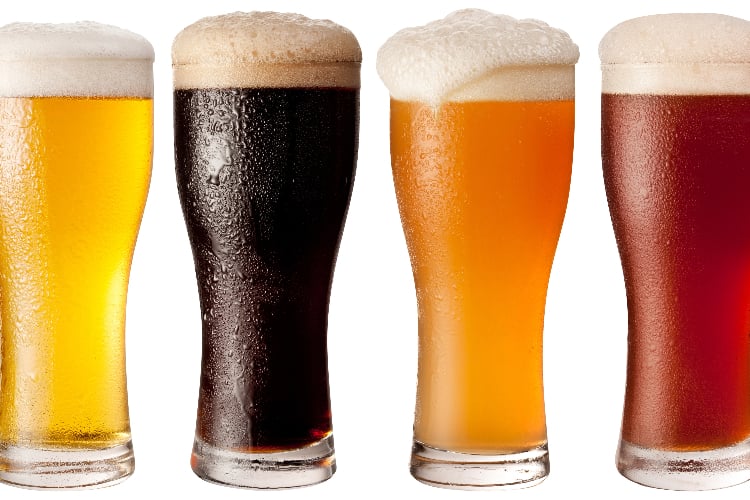
You can and should think of alcohol as a poison to your thyroid gland.
Alcohol not only has the ability to poison or damage cells in your body, but it also has a direct negative effect on your pituitary gland and thyroid function.
Consuming alcohol can also cause damage to your liver which reduces how well your liver functions.
Why does that matter?
Because your liver is the site of the conversion of thyroid hormones!
The more damage to your liver, the less active your thyroid hormone will be.
My recommendation is to avoid alcohol 100% if you have Hashimoto’s thyroiditis.
Your thyroid will thank you as well as the rest of your body.
#7. Processed Foods
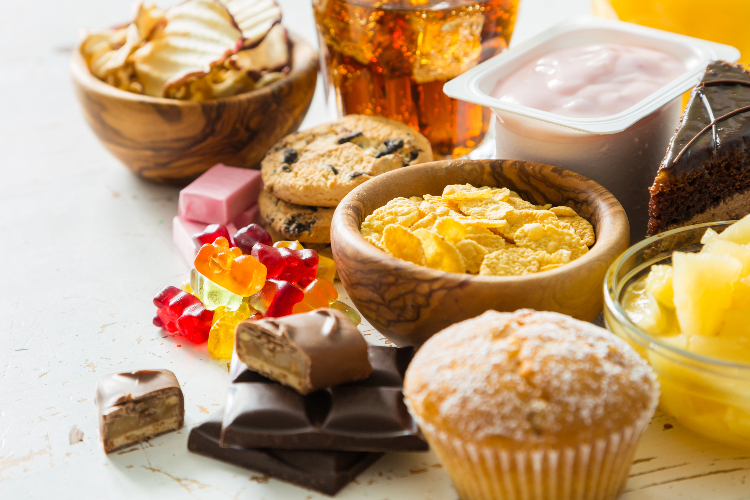
Processed foods should pretty much be avoided whether you have Hashimoto’s or not but they should DEFINITELY be avoided if you have Hashimoto’s.
What are processed foods?
Processing is just a way to describe that the food you are about to eat has undergone some change or alteration prior to being sold (5).
For instance, if you go to the produce section of your grocery store you will find food that is NOT processed.
An apple, for instance, just needs to be picked from a tree before its sold.
Processed food, on the other hand, goes through several steps before its sold which may include the addition of preservatives, the addition of flavor enhancements, the addition of salt, the addition of fat, and so on.
The benefit of processing food is that it has a longer shelf life but the downside is that processed food causes DAMAGE and INFLAMMATION to your body!
You don’t need to worry about processed foods as long as you are consuming a diet that is 100% whole food.
But, in case, you weren’t already doing this, consider this section a reminder that processed foods, while more convenient, will cause serious long-term damage to your health.
#8. Processed Sugar
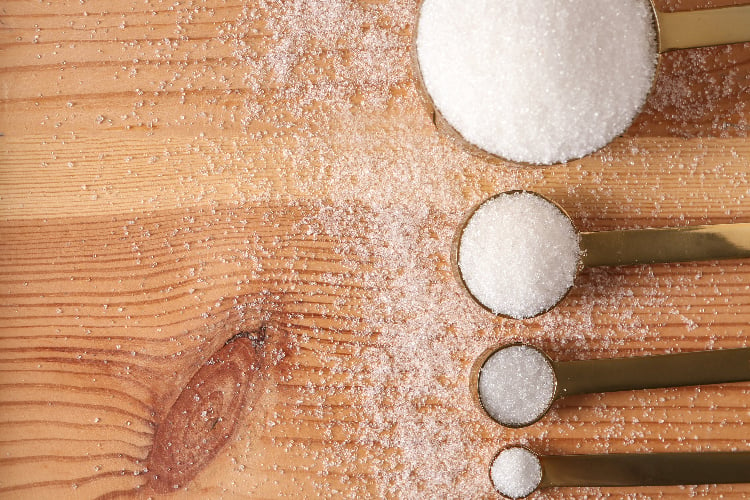
Most people will tell you that you need to avoid sugar 100% if you have Hashimoto’s, especially if you are overweight.
There actually isn’t a lot of evidence to suggest that consuming sugar, healthy sugars anyway, is harmful directly to your thyroid gland.
But there is some evidence to suggest that consuming too much sugar can cause inflammation and cause another harmful condition known as insulin resistance.
But, this doesn’t mean that you need to be fearful of sugar or avoid it like the plague.
I am actually a big fan of using healthy carbohydrates in thyroid patients because I feel that many thyroid patients need more than they are getting.
Having said that, there is a right way to use sugar and a wrong way.
If you are going to use sugar you want to make sure you are getting it from NATURAL sources.
This includes things like:
- Honey
- Maple syrup
- Agave syrup
- And minor amounts of coconut sugar
These types of sugars can be used to satisfy a sweet tooth if used in moderation.
Just like there are sugars that you can consume, there are also many sugars that you should avoid.
And sugars you want to avoid are processed sugars that have been ADDED to foods that are already processed.
Processed peanut butter with added sugar, would be an example of this but there are many others:
- Processed ice cream with added sugar
- Processed tomato sauce with added sugar
- Processed cereal with added sugar
- Processed “pre-made” dinners with added sugar and bad oils
I can’t list them all but hopefully, you get the picture.
Use MORE natural sources of sugar, in moderation, and zero processed and refined sugar.
#9. Industrial Seed Oils & Vegetable Cooking Oils
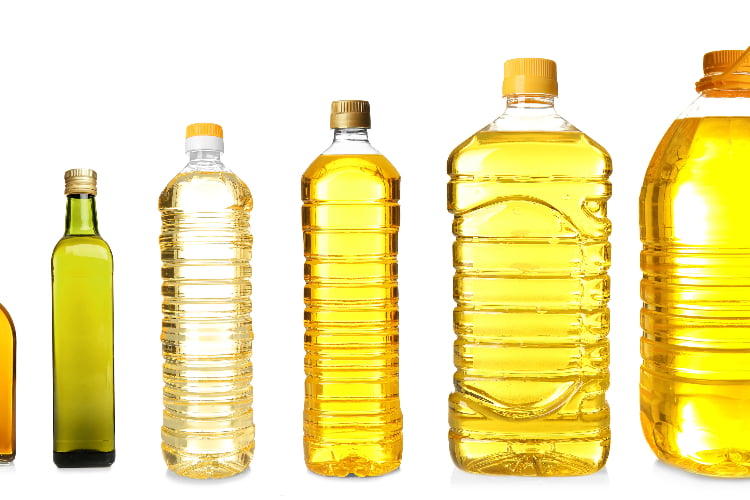
If there is one section that I want you to take extra seriously it’s this section.
Consuming bad oils, in my opinion, is one of the main reasons that the health of our nation has declined so rapidly over the last 20-30 years.
These bad oils are heavily processed and, when consumed, can cause inflammation which has a long-lasting effect on the body.
These bad oils, because they are fats, can get incorporated into the cell membranes of the cells in your body.
This incorporation weakens the integrity of the cells and leads to problems in cellular processing which results in things like long-lasting inflammation and hormone problems.
Not only are these oils bad for your body, but they are also found EVERYWHERE.
And, even if consumed accidentally, they can stick around for months and months inside of your body.
If you have Hashimoto’s then you will want to avoid THESE oils at all costs:
- Soybean oil
- Peanut oil
- Corn oil
- Safflower oil
- Wheat-germ oil
- Canola oil
- Sunflower oil
- Cottonseed oil
- Grapeseed oil
- Rice bran oil
Instead, use THESE oils!
- Extra virgin olive oil
- Coconut oil
- Butter from grass-fed cows
These oils are more expensive but will help your body eliminate the bad oils and improve the function of your cells.
#10. Certain Vegetables (if eaten raw in LARGE quantities)
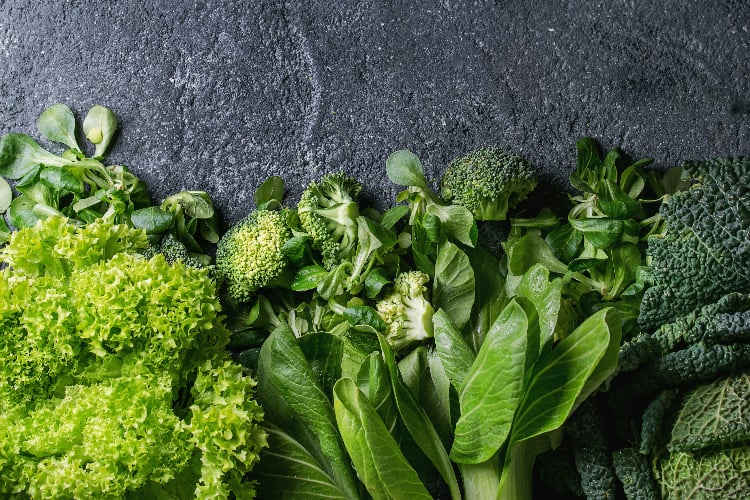
This is sort of a sneaky addition but it’s worth spending a little bit of time on.
Vegetables, in general, are AMAZING for your thyroid health and your overall health.
They should NOT be avoided, even if you have Hashimoto’s.
But, I should take some time to mention that consuming excessive amounts of certain types of vegetables (such as broccoli) has the POTENTIAL to cause minor thyroid problems.
This effect stems from the fact that broccoli and other vegetables in that family contain some goitrogens.
The good news is that you can basically eliminate these goitrogens by properly preparing your food.
Steaming your vegetables, instead of eating them raw, will eliminate this issue almost 100%.
And, even if you don’t steam your vegetables, eating raw veggies isn’t a problem for most patients with Hashimoto’s.
I mostly wanted to include this section so that you DON’T avoid veggies because you heard they can be dangerous to your thyroid gland but this is not the full story.
Final Thoughts
While you can make a significant impact on the health of your thyroid gland by avoiding certain foods, you should be aware that just avoiding foods should not be the only therapy that you use.
You should also be looking at therapies that include supplements designed to treat Hashimoto’s, certain prescription medications such as LDN, the use of thyroid hormones (if necessary), and so on.
Diet plays a major role in the development of Hashimoto’s but you will also want to look at these other areas if you are interested in treating and MANAGING your condition.
But now I want to hear from you:
Did any of the foods on this surprise you?
Are you already avoiding these food groups?
If not, are you planning on making any changes to your diet after reading this?
Do you also have any additional food groups to share which have caused problems for you personally?
Leave your questions or comments below!
Scientific References
#1. https://www.ncbi.nlm.nih.gov/pmc/articles/PMC4192807/
#2. https://ghr.nlm.nih.gov/condition/lactose-intolerance
#3. https://pubmed.ncbi.nlm.nih.gov/24078411/
#4. https://pubmed.ncbi.nlm.nih.gov/6104718/
#5. https://www.eufic.org/en/food-production/article/processed-food-qa
